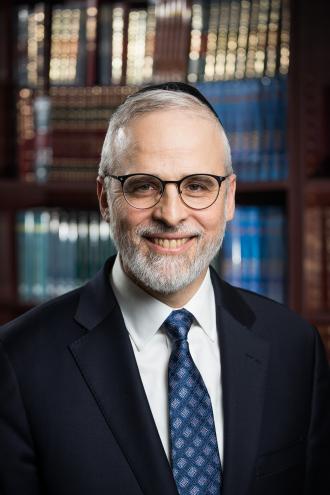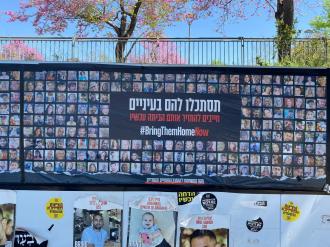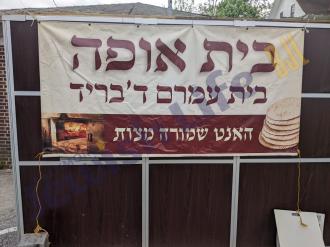This article consists of two original shaylos that I wrote in Hebrew. These teshuvos are in the process of being edited for the next volume of Shu”t Nimla Tal, which, when ready, will be uploaded to the website RabbiKaganoff.com. Both teshuvos are germane to atypical questions I have been asked about the laws of loshon hora. The two questions were:
- A therapist requesting guidance concerning what she should or should not say about a couple that she had counseled through a divorce.
- Is it loshon hora to tell over something that the person himself is not embarrassed about and does in public? For example, when these is no reason for the other person to know (no to’eles), is it loshon hora to say that someone has extreme political positions that he himself espouses in public? Or, is it loshon hora to say that a woman does not dress according to halacha, when she appears in public this way?
The original Hebrew responsa were amusingly adapted into “English” by Google Translate and then reviewed by me and some very talented editors. Thanks for your forbearance. I suspect that many of our readers will find some of the discussion relating to both of these cases very surprising.
The first responsum is to a question asked by a psychiatric social worker. A couple had become divorced from a marriage in which both parties were unstable. The social worker asking the shaylah, who I happen to know is an excellent therapist, was their marriage therapist. She feels that, although the husband and wife were both at fault for the dissolution of the marriage, the ex-wife is not currently a candidate for future marriage, whereas the ex-husband could handle a future marriage, but only with professional involvement (that is, marital therapy) from the very beginning of the marriage and perhaps even earlier. What may the therapist answer someone who asks her about these individuals for a future marriage? Both members of the former couple have given her authorization to speak freely.
What follows is an approximate rendition of the teshuvah.
Firstly, I want to clarify the ex-husband’s obligations to tell about his marital history to a future prospective mate or to a shadchan.
Until he is dating someone very seriously, he is not obligated to forewarn any woman whom he is dating about his previous difficulties and his need for pre-marital therapy. I advise that he tell a prospective bride after a certain number of dates, say three or four, at a point when the woman can evaluate fairly whether she wants to proceed. However, technically speaking, as long as he notifies her at a time that she can back out without creating a publicly embarrassing situation, he has not violated any halacha. In other words, he is not required to tell her until they are ready to become engaged.
Furthermore, he is under no obligation to tell a shadchan about any shortcomings.
In general, I would not recommend setting him up for a shidduch when it is fairly certain that the other party will back out of the shidduch upon hearing about his shortcomings and the necessity for marriage therapy. However, this is only if the shadchan happens to know about the background; as mentioned above, he is not obligated to tell a shadchan.
If the therapist is asked about his first marriage, she should say that what happened does not concern a different, new marriage. Regarding her assessment that, in a future marriage, the ex-husband should have counseling in advance, it is the ex-husband’s obligation to tell the other party, not the counselor’s. If the counselor is confident that he will follow instructions, both in terms of having therapy early in the relationship and in terms of his notifying the other party that this is necessary, she need not say anything. She is obligated to reveal this information only if she is concerned that the man will not tell.
Regarding the ex-wife, in the situation that happened, she was not emotionally prepared to consider dating for marriage, and therefore there was no issue for the therapist. Had the question been asked, I would have told the therapist that if the young woman is not suitable for marriage, yet is pursuing shidduchin anyway, the therapist is responsible to tell those who call her what she professionally feels. It might be better if she can couch the information in a way that is potentially less damaging for the woman. For example, if she is asked about someone specific, she could say that, from her knowing the woman so intimately through therapy, she does not think that this shidduch should be pursued – that the woman needs a different type of man.
She is not required to reveal any information if she could lose her license or get into legal trouble as a result. Instead, she should say that she cannot discuss the matter for professional reasons or any other answer that is legally acceptable. She should not say something that is not true.
I want to share that the answer to this shaylah may vary significantly depending on the circumstances. There are certainly situations in which I would rule differently. This teshuvah is being discussed here only for general direction, and each particular case must be asked specifically.
The second question:
Is it forbidden to tell someone that a person does not observe certain halachos when the person about whom one is talking is not embarrassed or concerned about others finding out their level of observance? For example, may someone who is from an irreligious background tell someone else how far his family is from observing mitzvos when the person being told has no reason to know? Similarly, is it permitted to mention that a woman dresses immodestly in public when obviously she has no concerns that people know?
There is some interesting background to this question. I know a prominent posek who considers these conversations to be prohibited. I have challenged him on the subject, and believe that they are permitted -- subject to certain conditions, such as when revealing the information is not harmful to a third party. An example where this would not be permitted might be a case where revealing the information could be harmful to a grandchild, such as if acceptance to a school or a shidduch might be pre-empted because of the now-public knowledge of a grandparent’s lack of observance. This would be prohibited because the Rambam (Hilchos Dei’os 7:5) states that it is loshon hora to say something that may cause harm to a third party, even when it does not reflect badly on him. (I am not judging whether the school or the potential shidduch policy is correct, or even whether it is halachically acceptable. Indeed, such school policy may be highly reprehensible. I am simply presenting the reality that an innocent party could be harmed because certain information is revealed.)
I have observed prominent poskim following the approach that it is permitted to say this without concerns for the prohibition of loshon hora. Furthermore, I contend that, according to the approach of the rav who rules that this is prohibited and considered loshon hora, someone who is opposed to Chassidim may not say that a person is chassidish; someone opposed to any form of Zionism is prohibited to refer to someone as Zionistic, notwithstanding that the person about whom he is talking is quite proud to be chassidish or Zionistic. The rav who disagrees with me indeed contends that these conversations constitute loshon hora if either the speaker or the listener considers this to be negative. I respectfully disagree and do not consider any of these conversations to be loshon hora.
I want to point out that the dispute here may be getting to a basic definition of what is the nature of the prohibition of loshon hora. It is quite clear from the Rambam’s ruling that the prohibition includes sharing information that may harm someone, even if it is inherently not negative about them. Thus, it is fair to say that the prohibition of loshon hora is the harm it brings upon the person about whom it is said.
In the classic situations of loshon hora, when one shares negative information about a third party that the person being told has no need to know, the loshon hora is the negative feeling about this third party that the listening party now knows. Prior to hearing the loshon hora, he was unaware of this damaging information.
Thus, the dispute between myself and the other rav concerns the following: When the person himself is not at all concerned about people knowing that they have unusual beliefs, or that they believe in something that other people disdain, or that they do not consider certain activities to be within the framework of what they are required to do, can there still be loshon hora to inform someone about this activity or belief. The other rav holds that the person’s being unaware that his approach is mistaken does not change the fact that saying over the information constitutes loshon hora. I believe that I can demonstrate that, should the information not be harmful to a third party, it is not loshon hora when the person himself acts this way in public.
Here is the edited responsum that I sent him:
The Gemara (Arachin 16) states, "Rabbah bar Rav Huna said: Anything stated in the presence of three people is not a violation of loshon hora. This is because your friend has a friend, and his friend has a friend." Rashi explains the Gemara to mean that, once someone revealed information about himself in the presence of three people, it is not loshon hora to repeat this information to others because the revealer assumes that it will become common knowledge. By revealing it before three people, he has demonstrated that he is not concerned that others will find out. The listeners can assume that they have permission to share this information with others, which, had he not told it in the presence of three people, they would not be able to assume.
From this discussion we see that, once someone declares information about himself in public, he assumes that people will find out, and there is no longer any prohibition of loshon hora. Certainly, it follows that telling what someone does in public cannot involve any loshon hora.
However, a superficial reading of a passage of Gemara (Bava Metzia 58b) might lead one to the opposite conclusion. There the Gemara states that everyone whose misdeeds land him in Gehenna will ultimately be released, with the exception of three categories of sinners. One is someone who embarrasses his fellowman in public; another is someone who calls his fellowman by a derogatory nickname. The Gemara asks why we need two such similar categories – isn’t someone who calls his fellowman by a derogatory nickname simply a subcategory of one who embarrasses his fellowman in public? The Gemara answers that the second category includes a situation in which the person is commonly called in public by the derogatory nickname. Rashi explains that, notwithstanding the fact that he is accustomed to the nickname and is no longer embarrassed by it, someone who intends to embarrass him by calling him by this nickname will not be released from Gehenna.
From this we see that, if one intends to embarrass someone, it is prohibited to say something even when it is well known. However, the Gemara passage implies that it is prohibited only when you speak in his presence and your intention is to embarrass him. In the instance of a woman who does not dress according to halachic standard, or someone who holds unconventional positions, when the person is not present, we have no evidence that informing a third party is prohibited. Furthermore, the discussion in Bava Metzia is not concerned about loshon hora, but of embarrassing someone. Therefore, calling someone by a derogatory nickname is forbidden because the person may be embarrassed. However, when someone is proud of what he is doing, even when the action is wrong according to halacha, there is no violation of loshon hora and presumably no violation of embarrassing them. This is even more so true when it is unclear whether the action is wrong.
Thus, we can reach the following conclusion: If one is trying to embarrass a woman who dresses improperly, it is forbidden to reprove her in public for her inappropriate attire. However, there is no prohibition in mentioning to a third party, when the woman is not present, that she dresses inappropriately, provided one does not exaggerate what she does wrong. Exaggerating would certainly be prohibited because one is spreading untruth about what she does.
Can we demonstrate from the story of Miriam that it is prohibited to say something truthful about a third party, regardless of their concern? After all, Miriam was punished for saying loshon hora about Moshe despite the fact that he was not concerned. She thought she was doing the correct thing, since she was convinced that Moshe was in error. The answer appears to be that what she did was loshon hora precisely because she was wrong. In other words, she thought she was planning an appropriate admonition of Moshe for his wrong activity, but since his actions were correct and she was wrong, this constituted loshon hora, even though her violation was beshogeig, inadvertent.
Thus, when the information qualifies as loshon hora, the prohibition is violated even if one did not realize that it is loshon hora. However, if the party himself acts or speaks in a way that the derogatory information is public knowledge, it is permitted to say it, provided one is not intending to embarrass anyone.
The rav who disputed with me feels that, if indeed the information is negative, even if the person himself does not consider it to be so, this may constitute loshon hora.
We are both in agreement that if the speaker said negative things about himself that might harm relatives or others, it is prohibited to repeat these negative things, as per the above-quoted Rambam.
I hope that our readers enjoy this presentation of teshuvos rendered ino English.















